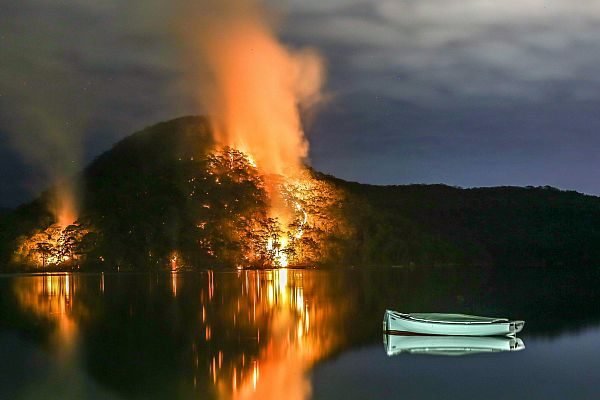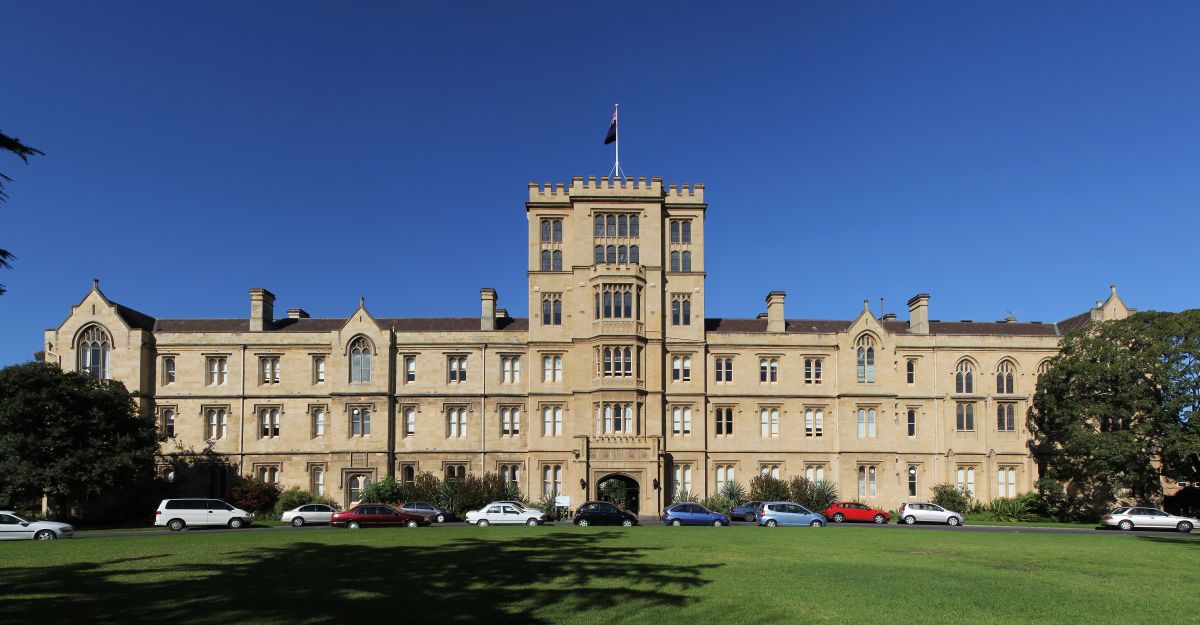Recently, the University of Western Australia decided to close down its eighty-five-year-old publishing house and Sydney University abandoned its long-running Chair in Australian Literature. At the same time, dire bush fires have destroyed lives, properties, and countless animals across vast swathes of the country.
Right now, Australia is besieged by disparate disasters which nonetheless are linked: one involves the devastating results of a climate change-induced fire catastrophe, the other is marked by the disappearance of our literary and cultural eco-systems.
Flames and heat figure in these two distinctive, yet weirdly evocative ‘end of the world’ scenarios. In different ways, two forms of existence are under threat: one involves the survival of our literary culture. The other the literal preservation of our land that supports the life and livelihoods of people, as well as sustaining the lives of countless animals and trees.
Themes of fire and heat operate in these two obliquely linked scenarios. Neoliberal capitalism is the link between these two very different threats to our collective humanity.
What is neoliberalism?
Neoliberalism first developed after the Great Depression, when it emerged as an alternative economic response to increased government regulation after the stock market crash that bankrupted individuals, communities and financial institutions across the globe. After the oil crisis of the 1970s, this deregulation allowed banks to institute the practices that culminated in the great financial crisis of 2008, at the expense of those at the very bottom of the economic ladder and of smaller economies and countries, especially in the Global South.
The profit-driven trajectory of neoliberalism has infected all aspects of life, especially in healthcare, education and politics. It is an especially noxious force in the tertiary sector: it is implicated in the widescale cutting and abandoning of courses and subjects, particularly those in the humanities, which in turn leads to the erosion of a quality education.
Neoliberalism is a uniquely pernicious force in its focus on short term profit over long term well-being, and preference for commodifiable ‘outcomes’ over the immeasurable gifts of knowledge, wisdom and ethics.
This has led, among many other things, to the exploitation of scholars – especially those working in the fields of history, philosophy and literature – as these areas of study are mispresented as ‘unviable’ in a competitive job market. The high-end analytical skills gained from a humanities degree also pose a threat to neoliberalism’s superficial mercantile goals since clear and deep forms of thinking run counter to the frenetic pace of its thoughtless consumerism.
Neoliberal capitalism is about achieving profit at any cost. Right now, the cost in Australia takes the form of an unprecedented early bush fire season that is being tragically experienced as people, their properties, livestock, and countless innocent creatures are suffering.
The government’s inability to acknowledge the urgency of global warming despite the extraordinary and sustained disastrous weather events of the past few years has been about in part embracing a false economy in which the notion of a ‘budget surplus’ is more important than preserving the environmental health of the nation.
It is time for us all to be aware of how neoliberalism feeds into a nasty small-mindedness that chooses profit over existence, and money over culture.
The very obvious threat that global warming poses to all Australians right now, and not in some obscure distant future, should mean that our politicians stop fighting amongst themselves in order to prevent the entire country from going up in smoke.
How neoliberalism is tertiary education’s ghastly gothic monster
The unimaginative, mercantile character of neoliberal capitalism is the kindling that led to the loss of Sydney University’s Australian Literature Chair, and more recently the UWAP shutdown. Its fire feeds upon us as a ghastly postmodern-Gothic monster who especially seeks to destroy those in the humanities.
In a recent Guardian article, Julienne Lamond has argued that Sydney University’s jettisoning of its chair is the product of a toxic neoliberalism, and of a prevailing cultural cringe. Powerful ideas, including cultural cringes and climate change denial have realistic economic, political and social effects. Markets and economies are driven by efficacious and prevailing ideas both because, and perhaps even more scarily, regardless of their truth.
Australia has been burdened by a crippling sense of inferiority that has enabled a neoliberal capitalism to more easily undermine its tertiary sector and our literary culture.
This is the same conservative neoliberal politics that denies or fails to act against the threat of climate change and cannot be bothered to protect the cultural health of Australia’s still-developing literary culture.
Further recent and serious setbacks threatening the future prosperity of our literary culture undermine the debate around issues of global warming. A humanities education, especially in this instance one that is literary-focused, provides sophisticated interpretive and analytical skills that are essential to any job market. But of course, this is not part of neoliberalism’s script.
Powerful and misleading ideas, that are in essence myths, such as the absurd notion that global warming is a left-wing hoax, are utterly central to neoliberalism’s market-oriented trajectory that is anti-intellectual, anti-science and anti-logic.
For far too long, a university humanities education has struggled as a demoralised commodity. It has been at the mercy of national and international political trends and markets, including the notion that a literary studies degree is worthless because it apparently will not provide job security.
Why responding to climate change action is particularly urgent for Australia
Australia has always suffered from catastrophic floods, droughts and bush fires. One can draw evidence from Dorothy Mackellar’s beloved, even sentimental poem ‘My Country’ that acknowledges Australia’s weather extremes as early as 1908:
I love a sunburnt country
A land of sweeping plains,
Of ragged mountain ranges,
Of drought and flooding rains
There is a long history concerning literary awareness of Australia’s uniquely harsh climate – most notably, Richard Flanagan’s acute commentary, as well as Sophie Cunningham’s astonishing writing on the precious lives of trees. Besides which, Richard Wiles has revealed that the American Petroleum Institute has known of the dire impact upon the environment of fossil fuels for half a century and of course did nothing about it.
Once the fires abate, the government needs to take real and immediate action on climate change so that the recent shocking loss of life, livelihood and habitat is meaningfully addressed. Part of this involves generously funding emergency services and workers that will have to deal with life-threatening weather events more often now because of the government’s failure to act on the science sooner. And of course, it also means reducing carbon emissions.
It would be admirable if the government now acted accordingly on the irrefutable science that is now being realised in the form of apocalyptic bush fires.
It would also be commendable if Australia’s literary culture was safeguarded so that fine minds are preserved facilitating healthy and informed debate around the urgent reality of climate change.
Finally, living should never just be about survival; it should also include aesthetic cultural forms that bring immense pleasure and joy to countless people’s lives.
Image: Martin Snicer






